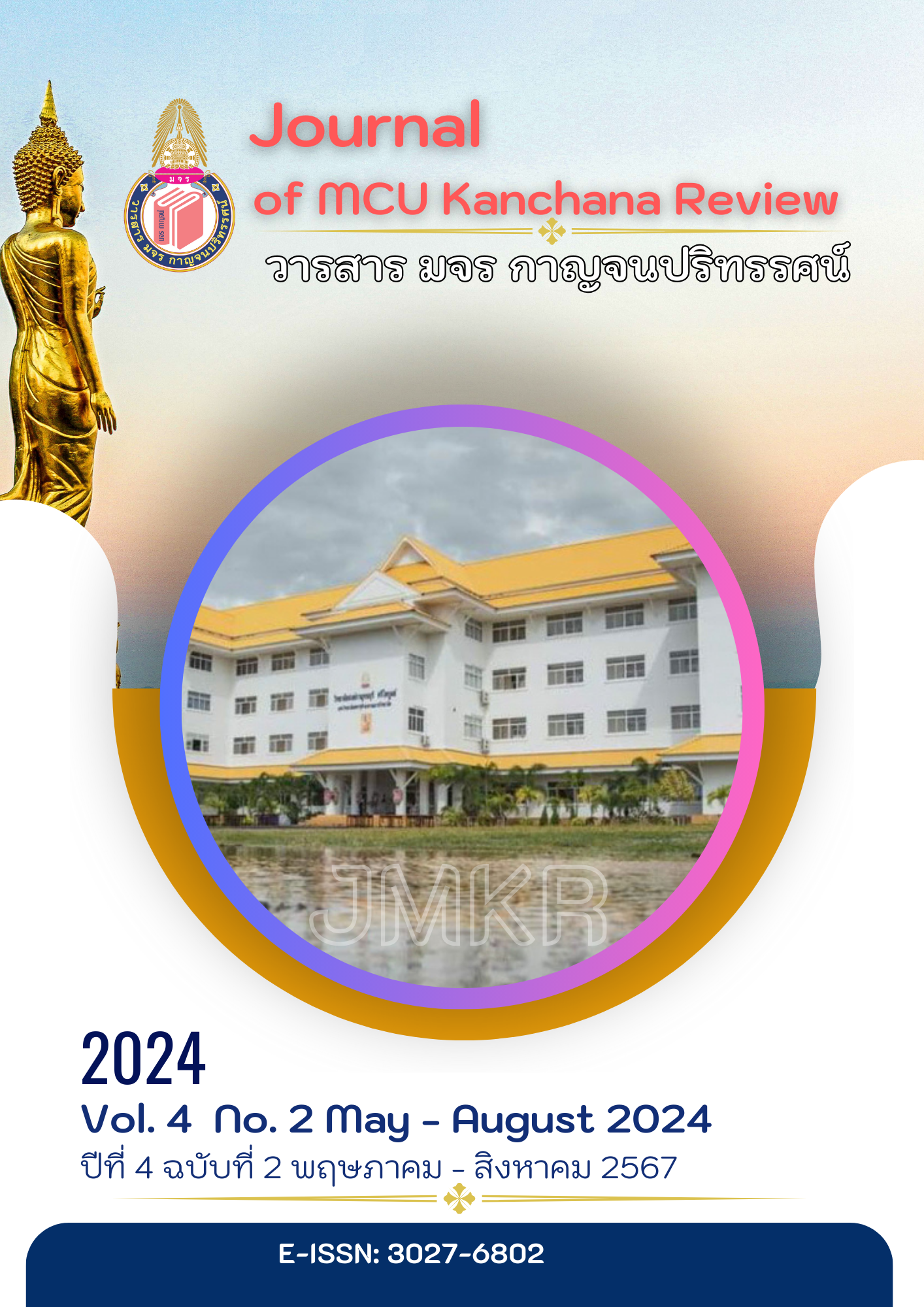แนวทางการสร้างทักษะซอฟต์สกิลด้วยกระบวนการวิศวกรสังคม สำหรับนักศึกษามหาวิทยาลัยราชภัฏกาญจนบุรี
Main Article Content
บทคัดย่อ
การพัฒนาซอฟต์สกิลกลายเป็นสิ่งที่สำคัญต่อการใช้ชีวิตทำงานในโลกที่มีความผันผวน เปลี่ยนแปลงรวดเร็วไม่ว่าจะเป็นทักษะการปรับตัว ทักษะการสื่อสาร ทักษะการมีทัศนคติเชิงบวก ทักษะการทำงานเป็นทีม ทักษะความคิดสร้างสรรค์ ผลของงานวิจัยชี้ให้เห็นว่าทักษะซอฟต์สกิลเป็นส่วนหลักที่ทำให้เกิดความสำเร็จ ในการทำงานมากกว่าทักษะฮาร์ดสกิล นโยบายด้านการศึกษาทุกระดับจึงมุ่งเน้นไปที่การสร้างทักษะดังกล่าวโดยการปรับเปลี่ยนกระบวนการสอนให้เด็กมีการเรียนรู้ที่มีผู้เรียนเป็นศูนย์กลางและเพิ่มการเรียนรู้นอกห้องเรียน มหาวิทยาลัยราชภัฏได้ใช้ความได้เปรียบในแง่ของการเป็นมหาวิทยาลัยเพื่อการพัฒนาท้องถิ่นสร้างแนวทางการพัฒนานักศึกษามหาวิทยาลัยราชภัฏให้มีซอตฟ์สกิล 4 ทักษะด้วยกระบวนการวิศวกรสังคม 5 เครื่องมือ เริ่มต้นตั้งแต่ปี พ.ศ. 2562 และพัฒนาต่อเนื่องจนมาถึงปัจจุบัน สร้างระบบกลไกการบริหารที่มีประสิทธิภาพ มีระบบนิเวศที่เหมาะสำหรับการเรียนรู้ สร้างพื้นที่สำหรับการฝึกปฏิบัติทั้งในชุมชนและในมหาวิทยาลัย ทำให้นักศึกษามหาวิทยาลัยราชภัฏกาญจนบุรีได้เห็นประโยชน์และมีความตระหนักสำนึกรักและพัฒนาชุมชนตามศาสตร์ของตนเอง ทักษะที่จำเป็นต่อการทำงานในศตวรรษที่ 21
Article Details

อนุญาตภายใต้เงื่อนไข Creative Commons Attribution-NonCommercial-NoDerivatives 4.0 International License.
เอกสารอ้างอิง
จุฑามาส โหย่งไทย. (2561). การพัฒนาทักษะการคิดเชิงวิพากษ์กับศตวรรษที่ 21. วารสารการบริหารการศึกษา มหาวิทยาลัยศิลปากร, 9(2), 344-256.
สำนักเลขาธิการสภาการศึกษา. (2564). แผนการปฏิรูปประเทศด้านการศึกษา. สืบค้นเมื่อ 15 มีนาคม 2567, จาก http://nscr.nesdc.go.th/wp-content/uploads/2022/03/แผนการปฏิรูปประเทศด้านการศึกษา.pdf
นงรัตน์ อิสโร. (2563). คู่มือพัฒนานักศึกษาเพื่อการพัฒนาประเทศ. กรุงเทพฯ: ร้านนายอินทร์.
Balcar, J. (2014). Soft skills and their wage returns: Overview of empirical. literature. Review of Economic Perspectives, 14(1), 3-15.
Doyle, A. (2019). Top Soft Skills Employers Value with Examples. Retrieved March 15, 2024, from https://www.thebalanc-ecareers.com/list-of-soft-skills-2063770.2019
Eraut, M. (1994). Developing Professional Knowledge and Competence. Falmer Press.
Kautz. T.D., Heckman, J., Diris, R., ter Weel, B., & Borghans, L. (2014). Fostering and measuring skills: Improving cognitive and non-cognitive skills to proving lifetime success. Cambridge, MA: National Bureau of Economic Research.
Klaus, P. (2010). Communication breakdown. California Job Journal, 28, 1-9.
Pink, D. H. (2006). A Whole New Mind: Why Right-Brainers Will Rule the Future. Riverhead Books.
Pound, R. (1912). The Scope and Purpose of Sociological.Jurisprudence. Harvard Law Review, 25(2), 140-168.
Skill Builder Pro. (2018). Soft Skills: The Hard Skills for Today’s Workforce.Skills Builder Pro. Retrieved March 15, 2024, from https://mma.prnewswire.com/media/792186/Soft_ Skills_The_Hard_Skills_for_Today_s_Workforce_Final.pdf?p=original.


